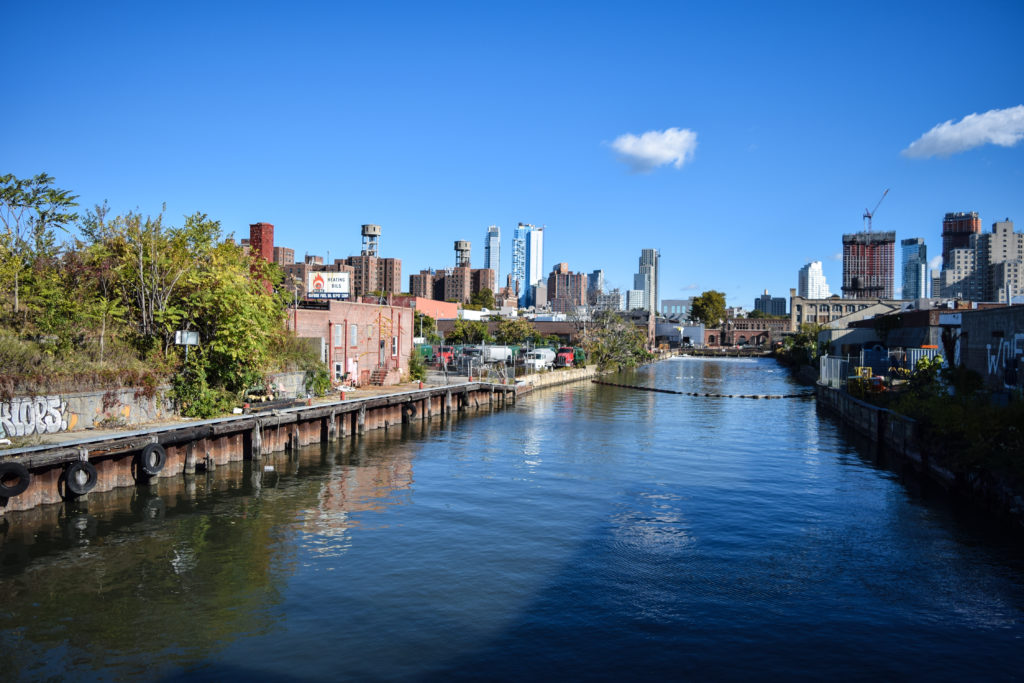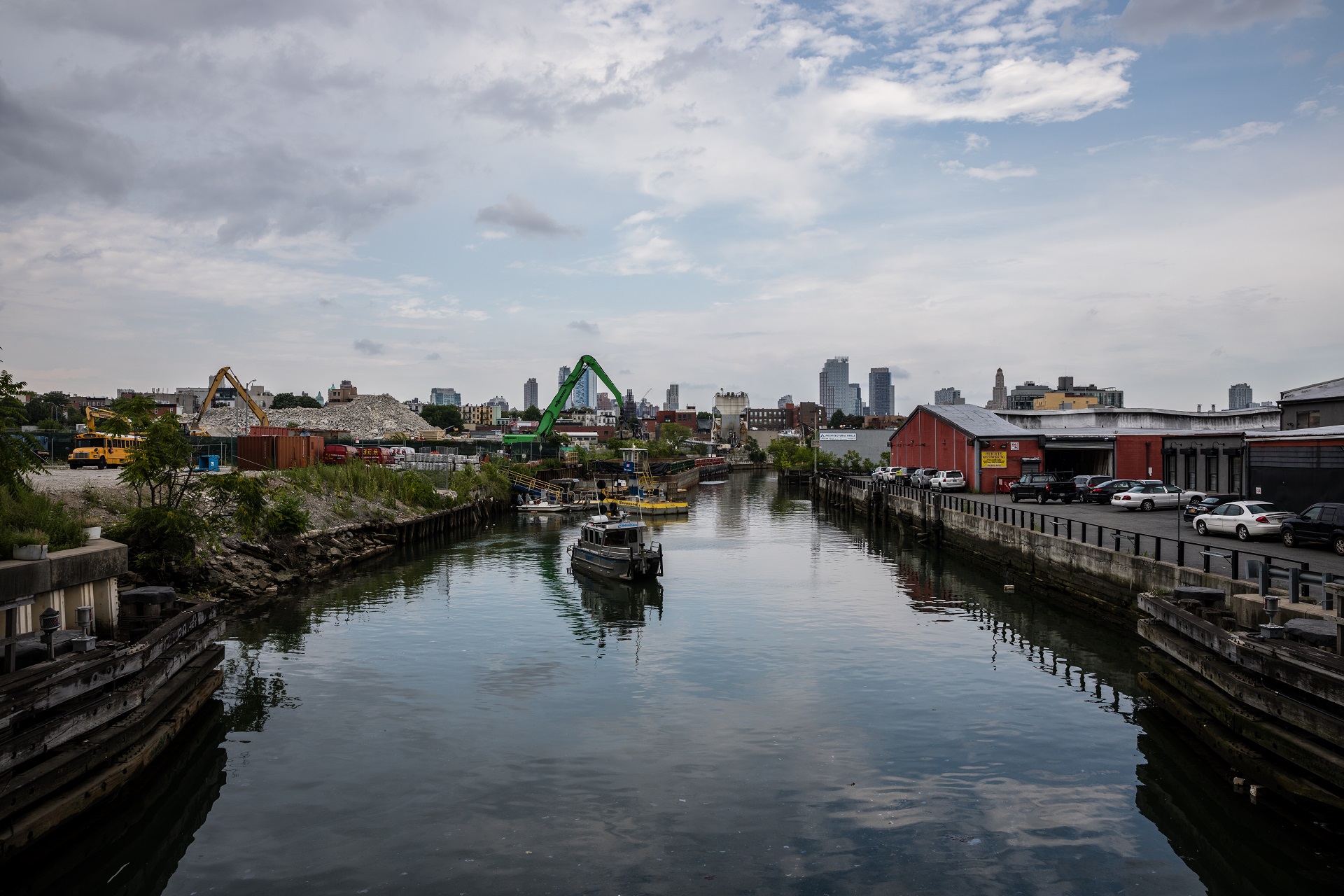Gowanus business owners fear extinction from city’s rezoning plan
"If we’re not at the table, we’re going to be on the menu."

The Gowanus Canal cleanup, which is estimated to last two-and-a-half years, will get underway by fall. Photo: Rob Abruzzese/Brooklyn Eagle
Gowanus merchants met with city officials on Tuesday — the second meeting this month — to discuss the challenges they are experiencing, the improvements they would like to see, and, most importantly, their concerns about the city’s proposed rezoning.
The controversial plan, introduced in late March, could bring 20,000 new residents to the area. This influx could potentially alter Gowanus’ Industrial Business Zone — one of 21 manufacturing areas across the five boroughs that receives assistance from the city in the form of tax incentives and business services.
The proposal prioritizes an increase in housing and industrial space and seeks to streamline waterfront access. It has been met with fierce opposition from residents.
